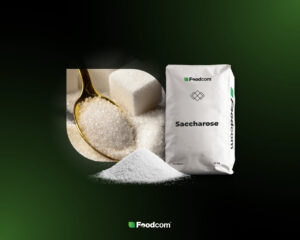- The PDA Association reminds farmers what to bear in mind when establishing winter cereal crops.
- It is important to ensure proper soil quality and structure.
- Phosphate fertilisation promotes plant rooting, nutrient and water uptake and protects against drought and cold.
- Potassium nutrition protects plants during the winter by preventing freezing and damage, and reduces the risk of diseases and pests.
What to bear in mind when establishing winter crops?
We are now at the point in the year when winter cereal crops are being established. The Potash Development Association (PDA) reminds us of the principles of successful winter crop establishment and stresses the importance of getting the soil structure and soil chemistry right. Soil structure can be compacted after a full season of variable weather conditions and the harvest of previous crops, which should be corrected before the next crop is established. This will allow undisturbed root growth and maximum soil exploration for efficient uptake of nutrients and water by the plants. Care should also be taken to ensure that the soil index and soil chemistry is appropriate for the crop, ensuring sufficient nutrient availability during plant growth. Another important aspect is to provide the plants with the required amounts of nutrients throughout the season.
Crop nutrition – phosphate and potassium fertilisers
At the initial stage of plant growth, phosphorus fertilisation, which is involved in root growth and development, plays a major role. Phosphate deficiency can lead to reduced growth of lateral roots and inhibition of root elongation. Phosphorus fertilisation is necessary to improve rooting and increase the plant’s access to nutrients and water. Rooting the crop already in autumn is very important for better plant performance during the season. A plant with a good root mass over the winter will be much healthier and better protected against low temperatures and drought, also in the spring and summer periods.
Plants also need potassium in autumn. Feeding with this nutrient increases cold tolerance in stressed plants. Such plant protection is necessary so that photosynthesis, plant growth and development are not inhibited, which could result in lower crop productivity during the season. In addition, a high concentration of potassium in plant cells helps to protect them from freezing during winter and the formation of cold damage. It also reduces pest invasion and diseases caused by fungi, bacteria or viruses.

![Potash Development Association reminds how to successfully establish winter crops [World News] Potash Development Association reminds how to successfully establish winter crops [World News]](https://foodcom.pl/wp-content/uploads/2023/09/Foodcom_World_News_Plant-Based-1520x760.jpg)


![Do the rains in Brazil offer hope for coffee farmers? [World News] Do the rains in Brazil offer hope for coffee farmers? [World News]](https://foodcom.pl/wp-content/uploads/2023/09/Foodcom_World_News_Global-600x300.jpg)
![Rising butter prices bad news for bakers [World News] Rising butter prices bad news for bakers [World News]](https://foodcom.pl/wp-content/uploads/2023/09/Foodcom_World_News_Industrials-600x300.jpg)
![Latest EU sugar production forecasts [World News] Latest EU sugar production forecasts [World News]](https://foodcom.pl/wp-content/uploads/2023/09/Foodcom_World_News_Additives-600x300.jpg)

